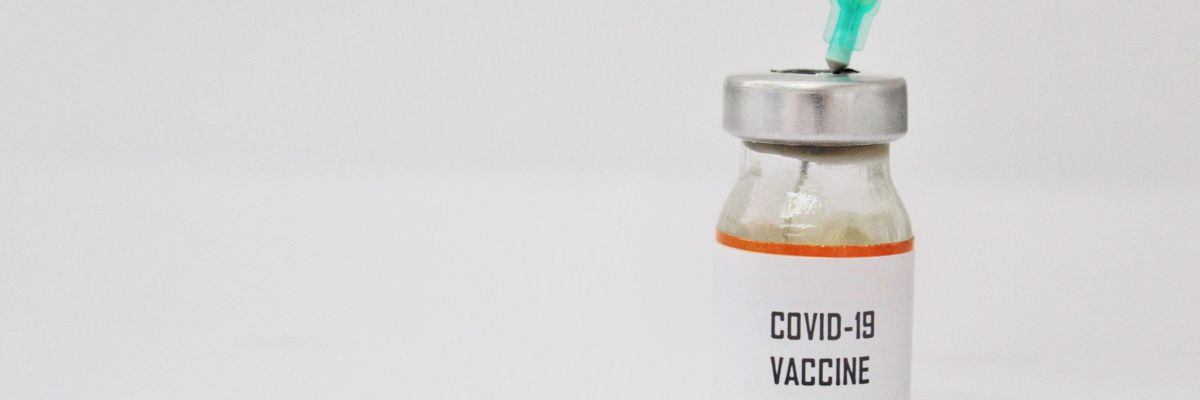The distribution of a potential vaccine against COVID-19 is likely to become one of the dominating issues that will shape international relations. Countries with the ability to control the production of a vaccine will have the power to influence and put pressure on those that don’t. They can determine the speed of economic recovery of others and use the vaccine as a bargaining tool.
The sprint to develop a vaccine also increases the tensions between the United States and China and has been compared to the race to the moon between the U.S. and the Soviet Union during the Cold War. As the mistrust dominates, no country wants to be second. American security experts have accused China of hacking and obtaining scientific data on the vaccine. The issue of access to a COVID-19 vaccine not only threatens to put a strain on the relations between the great powers, but it can also create new rifts between rich, industrialized countries and developing and emerging nations.
These conflicts are likely to increase if there is no agreement on the distribution of the vaccine and if access depends on the forces of the free market. Governments will try to buy vaccines for their own population, which would cause a global hoarding dynamic. Pharmaceuticals then don’t end up where they are needed most, but in countries that are willing to pay the highest price or are able to exert the greatest pressure on companies. The experience of the swine flu pandemic (H1N1) in 2009 highlighted that a lack of regulation and cooperation disadvantages low- and middle-income countries. In 2009, rich countries had bought virtually all available doses of the H1N1 vaccine.
Given the lack of regulations and the power factor of a COVID-19 vaccine, it is crucial to make an arrangement for fair and equitable distribution now. In the face of global pandemic, an international agreement to ensure global access is in the interest of everyone. Governments benefit from preventing new outbreaks in other countries because the spread of a highly contagious virus can only be contained if there are no new cases elsewhere. It is not sufficient to immunize one’s own population only.
To prevent conflicts and ensure fair, equitable, and global access to a vaccine, the international community should take three steps: prevent excessive pricing, agree on a fair allocation system, and strengthen the infrastructure necessary to distribute a vaccine.
In a situation with high demand and short supply, market forces will drive up the price for a new vaccine, even if pharmaceutical companies don’t take advantage of the situation and inflate the price artificially. At the annual World Health Summit in May, member states of the World Health Organization adopted two resolutions in which they express their willingness to cooperate, and to ensure fair and equitable access to COVID-19 treatment and vaccines at affordable prices.
One possibility to prevent excessive pricing is to use compulsory licensing, through which governments can allow other companies to produce a specific drug or vaccine without the permission of the patent holder. Compulsory licensing is possible under the rules of the World Trade Organization. It should only be used in emergency situations, but it can be a tool under the current circumstances to ensure global access to a COVID-19 vaccine. In Canada, emergency legislation allowed the minister of health to circumvent patent rights if necessary. Four European countries announced to negotiate jointly with pharmaceutical companies to ensure affordable prices.
One of the most sensitive questions will be to agree on the allocation of a new vaccine. The international community needs to build a framework to determine how available vaccine doses should be distributed, how they can be deployed, and who is coordinating the process. Similar to the needs assessments that are common for the provision of humanitarian aid, such a framework for a COVID-19 vaccine needs to take into account the greatest needs, but also changing trends to anticipate the emergence of hotspots and mitigate the impact of new outbreaks.
During the H1N1 pandemic, the WHO Deployment Initiative was established to coordinate vaccine donations and distribute them among developing countries. The WHO acted as a secretariat and implementing body. While countries can learn from the experiences of the H1N1 Deployment Initiative, an operation for COVID-19 will be more complex because of the greater scope and the higher number of actors involved. It is possible that there will be more than one vaccine, with production scattered over different places, and more low- and middle- income countries that request assistance.
A third necessary step will be to strengthen the infrastructure in countries and overcome logistical challenges, such as the lack of cold chains which are usually necessary for the storage and transportation of vaccines.
President Trump in May announced “Operation Warp Speed” — an investment program to develop a vaccine by January. The president also made it clear that he intends to serve the American people, rather than to share a new vaccine. His announcement to cease cooperating with the WHO will make it more difficult — but not impossible — to build a multilateral framework for the distribution of a new COVID-19 vaccine. The time needed to develop a vaccine provides the space to make the arrangements necessary for a quick, fair, effective and efficient distribution of a vaccine ones it is ready.














